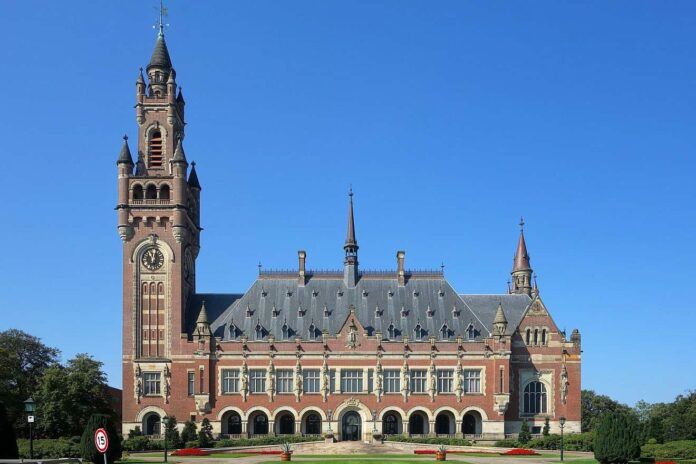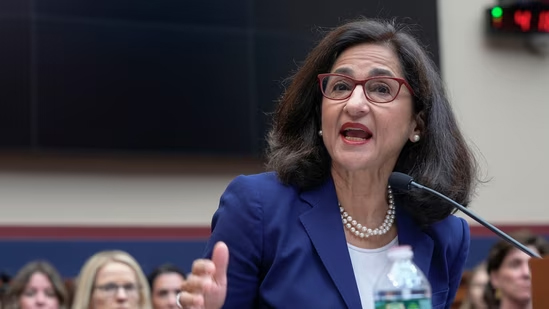David Zaslav Will Bankrupt Warner Bros. Discovery Channel
Edited by: TJVNews.com
David Zaslav, the chief executive of Warner Bros. Discovery, has once again found himself in the spotlight as details of his compensation package for the previous year surface. As was recently reported in the New York Times, according to a proxy statement filed with the Securities and Exchange Commission, Zaslav received a substantial $49.7 million in compensation in 2023, marking a notable 26 percent increase from the preceding year.
While it’s no secret that chief executives in the media industry often command significant pay packages, Zaslav’s compensation draws particular attention given the company’s recent performance. As was noted in the NYT report, Warner Bros. Discovery, despite showing signs of improvement, faced substantial losses totaling $3 billion in 2023. This figure, albeit a significant improvement from the previous year’s staggering $7 billion in losses, illustrates the challenges the company is grappling with.
According to the proxy statement, Zaslav’s compensation for 2023 included a $3 million base salary, long-term stock awards amounting to $23 million, and a cash payment of $22 million guaranteed by a 2021 employment contract, as was stated in the NYT report. Additionally, he received $1.6 million related to security and personal use of the corporate jet. Also noted in the NYT report was that while these figures may appear substantial, they represent a notable decrease from Zaslav’s compensation in 2021, when he received $246.6 million, reflecting changes in the company’s performance and executive compensation structure.
In its proxy statement, Warner Bros. Discovery acknowledged the challenges posed by shifting advertising dynamics, declining linear television viewership, increased competition from traditional and tech media giants, and the lingering effects of the COVID-19 pandemic on movie-theater attendance, as was affirmed in the NYT report. Despite these challenges, the company commended Zaslav for his exceptional leadership and for delivering on various financial, operational, and strategic objectives throughout the year.
Furthermore, the company demonstrated its commitment to rewarding top talent by granting substantial raises to key executives, including the chief financial officer, president of streaming, chief revenue and strategy officer, and international president, as per the NYT report. These investments in leadership underscore Warner Bros. Discovery’s focus on nurturing talent and driving continued growth and innovation in an increasingly competitive and dynamic media landscape.
The decline in revenue, which fell by 4 percent, can largely be attributed to the dwindling fortunes of the company’s cable television business, encompassing notable brands such as CNN. According to the information provided in the NYT report, this decline reflects broader shifts in consumer behavior and the evolving landscape of media consumption, presenting formidable hurdles for traditional cable providers.
Moreover, shareholders at Warner Bros. Discovery’s annual meeting voiced their discontent with Zaslav’s compensation through a nonbinding “say on pay” vote. Only 50.8 percent of shareholders approved of the $39.3 million he received in 2022, signaling a lack of robust support for his remuneration, as per the NYT report. Such low approval, particularly falling below the 70 percent threshold deemed acceptable by corporate governance standards, underscores the growing scrutiny surrounding executive pay practices.
In response to shareholder concerns, the Warner Bros. Discovery board took steps to recalibrate the compensation structure for its top executives in 2023. This adjustment involved revising certain bonus criteria, with a greater emphasis placed on metrics related to generating free cash flow, essential for debt reduction, and less reliance on the company’s stock performance, according to the information contained in the NYT report. This move reflects a strategic shift aimed at aligning executive incentives more closely with the company’s financial objectives and long-term sustainability.
Warner Bros. Discovery, amidst a landscape of industry upheaval and evolving consumer preferences, showcased remarkable financial resilience in 2023, significantly surpassing Wall Street’s expectations, as was detailed in the NYT report. The company reported a stellar free cash flow of $6.2 billion, marking an impressive 86 percent increase from the previous year. This robust performance was buoyed by several factors, including improved financials within the streaming division and cost savings resulting from the Hollywood strikes that disrupted production for six months.
The company’s streaming division, in particular, emerged as a significant contributor to its financial success, transitioning to profitability and bolstering overall cash flow. Furthermore, the NYT report said that the unexpected windfall from the Hollywood strikes, which led to reduced production costs, further bolstered the company’s bottom line.
A key outcome of this financial success was Warner Bros. Discovery’s ability to make substantial strides in debt reduction, trimming its total debt by 11 percent to $44.2 billion in 2023, the report added. This debt reduction not only strengthens the company’s financial position but also enhances its ability to pursue strategic initiatives and navigate uncertainties in the ever-changing media landscape.
The disparity in executive pay among top entertainment industry leaders has come under heightened scrutiny amidst the seismic shifts from traditional television to streaming platforms. Indicated in the NYT report was that in 2023, notable figures such as Robert A. Iger of Disney, Ted Sarandos of Netflix, and Bob Bakish of Paramount Global, alongside David Zaslav of Warner Bros. Discovery, received substantial pay packages, sparking controversy and criticism in an industry grappling with profound transformations.
Robert A. Iger, the former chief executive of Disney, received a pay package valued at $31.6 million in 2023, representing a significant 31 percent decline from the previous year, the report in the NYT said. Iger’s fluctuating compensation is emblematic of his retirement and subsequent return to a leadership role within the company, reflecting the complexities and uncertainties surrounding executive remuneration.
Meanwhile, Ted Sarandos, co-chief executive of Netflix, maintained a consistent compensation level, receiving $49.8 million in 2023, comparable to the previous year, the report added. This robust compensation illustrates Netflix’s continued dominance in the streaming landscape and the strategic importance of Sarandos’s leadership in driving the company’s growth and innovation.
In contrast, Bob Bakish, chief executive of Paramount Global, experienced a modest 2 percent decline in compensation, receiving $31.3 million in 2023. The NYT also reported that Paramount Global, facing its own set of challenges amidst industry upheaval, navigated turbulent waters under Bakish’s leadership, reflecting the broader complexities and uncertainties facing traditional media companies.
Fran Drescher, president of the actors’ union, condemned the disparity between executive compensation and the challenges confronting industry workers, decrying the allocation of hundreds of millions of dollars to CEOs while pleading poverty, the NYT report explained.
The impact of executive pay disparities on industry dynamics was further exacerbated by widespread union strikes, as workers protested against cost-cutting measures and layoffs amidst lavish CEO compensation. Noted in the NYT report was that many entertainment companies, including Warner Bros. Discovery, implemented aggressive cost-cutting measures in 2023, resulting in layoffs and reduced production output.
Zaslav emerged as a central figure in the discourse surrounding executive compensation and industry challenges. Also mentioned in the NYT was that despite Warner Bros. financial resilience and aggressive cost-cutting measures, Zaslav’s leadership faced scrutiny, particularly in light of shelved projects like “Batgirl” and “Coyote vs. Acme.”
In a statement at The New York Times’s DealBook Summit, Zaslav emphasized the company’s commitment to bold decision-making, stating, “We said no sacred cows.” This sentiment encapsulates the strategic imperative for entertainment companies to adapt to evolving market dynamics and prioritize long-term sustainability amidst industry turbulence.
















